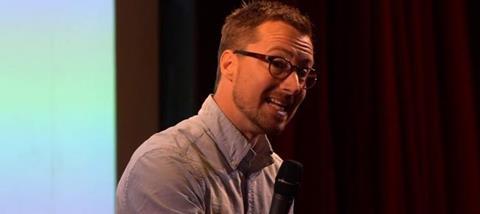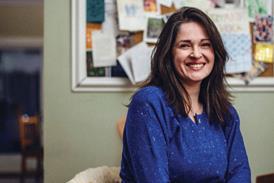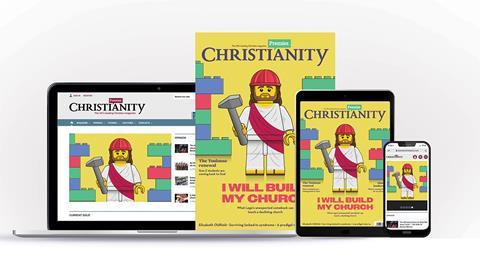
Hey, other survivors, I see you. You are not alone.
People supporting survivors, I see you too. Thanks for standing with us when we can feel so alone.
On days when your deepest trauma is international news, what do you do?
Before I share advice for fellow survivors (we are addressing trauma so please be aware of possible triggers) I want to address friends, partners, journalists, pastors, or just empathetic souls seeking the healing of our world. Here are 3 suggestions to contribute to that healing, and not the harm.
3 ways to help the hurting
1. Remember we are here
Don't write your articles without us. Be aware that 'hot takes' burn those of us for whom this is not abstract. It's hard to express how isolated we can feel, not just as victims of abuse but as victims in the one community we should have been most safe, the church.
It's not just the trauma of what happened and where it happened, it's the trauma of well meaning Bible quoting fools who engage in theologies of cover up, backlash and blame of victims. It's also the trauma of police interviews and legal systems where we are put on trial as if we have committed the crime(s). These layers of harm are complicated and often compounding of each other.
Please, don't talk about us, listen to us. This is your opportunity to be the church, in loving solidarity and reverse just a little of the wrong. We are here, just be here with us.
2. Don't jump to the "F" word
If you haven't stood with the victims, you don't get to talk about forgiveness.
Yes forgiveness is central to the Gospel but that's our freedom, our liberation. If you wait, if you share in our anger and grief, if you enter into Sheol with us, if you seek justice, defend and take up the cause of survivors we will welcome you as we lead in that costly deliverance that is forgiveness. Only then will the definition of forgiveness be clearly heard as healing-justice.
But if your understanding of forgiveness does not bring an end to the harm, it’s not forgiveness. It’s just more harm. Too much has been taken from us. Don’t take that as well. Don’t set timelines. We know forgiveness is a process. We need you to know that it’s a process of liberation. Forgiveness is central to the Gospel in that resurrection power flows from the Forgiving Victim, it is never forced upon victims.
Forgiveness is never saying "it doesn't matter". Forgiveness insists it matters more than you can imagine. Forgiveness has nothing to do with forgetting. Forgiveness is remembering in ways that liberate. Forgiveness is where we recover a sense of self that's deeper than what we suffered. To state the obvious, forgiveness never means allowing others to be harmed again. Forgiveness is a way of being that means our lives no longer revolve around what they did. It's our freedom. It’s our liberation into a power that is greater than the pain. But if you have not stood with us, advocated with us, cared more for the truth than for harmony, well, from your mouth forgiveness will just be another “F word”.
3. Never teach mercy without justice
At moments such as these the clarity of a Gospel perspective needs to come from survivors of clerical abuse, never at the cost of them.
If a so called “gospel perspective” is not good news for those abused, it’s no Gospel at all. People who talk of mercy without justice are advocating injustice, not mercy. People who talk of justice without mercy are advocating vengeance, not justice. Injustice and vengeance will not heal me. We need healing-justice, not sentimentality or outrage.
Be committed to the truth regardless of what it costs. Stand with the victims despite the consequences. Oppose anything that would dehumanise. Be aware that dealing with the police, the press, and the legal proceedings can often dehumanise. Abandon all theologies that compound dehumanisation. For those who are interested in more on this please see "Survival as Theology".
5 suggestions for survivors
As a survivor who is a person of faith here’s what I find helpful at times like this. It is in no way a complete list, but here are 5 things you may find helpful when the headlines are filled with what you talk about in therapy:
1. Listen
What can you hear? Can you hear birds? How many? What kind? What are they saying? Can you hear your breathing? Can you hear the cries of your heart? Can you hear that "still small voice"? What are you needing to welcome healing today?
2. Remember you get to choose
You don't have to engage today, or you can.
You don't have to watch the news today, or you can.
You don't have to read the opinion pieces today, or you can.
You don't have to share your story today, or you can.
You don't have to look at social media today, or you can. (I rarely find it healing)
Honour all that happens for you today by deciding what you need. Not sure? Return to the birds of the air. What can you hear? What does your heart need? Let the birds minister to you, and take back your choices.
3. Look to others
You are not alone. Days like today can feel particularly lonely. You are probably a good friend to others. There are people who are willing to be a good friend to you. It might take saying, "Hey, I need to share something heavy, have you got time?" Find a safe person or people who don't want to fix you, diagnose you, or silence you but can just be with you. (If you feel you don't have anyone, know you can message me)
Find people who understand it's not just the abuse but the trauma of faith institutions conspiring against the light. Find who can hear how hard it is to count the cost, to take up your cross and expose the evil, reporting the crime(s) only to be met with weaponised Bible verses that blame those being crucified. Find a safe place to share the reality of what it was like preparing for the court process and the sentencing. Find someone it's safe to swear in prayer with.
4. Find solidarity
If you choose, you can hear the witness of others, help their voices be heard. Consider their courage. Give thanks for your own courage and the courage of others.
Let me say it in case you haven’t heard it today, you are incredible. What you have walked through and yet you're still open to love others is a miracle. Give thanks for still being here, still kicking at the darkness till it bleeds daylight, and still choosing to allow healing in. Remember how incredible it is that you put a stop to this evil despite the incredible costs. Remember you are not alone. Know that the depths through which you've walked is the depth of hope you offer to others currently in the valley.
5. "...and took back what he stole from me"
For survivors who are Christians the added complications of institutions stealing what is most dear is a kind of devastating that is hard to put into words. If it's helpful hearing another express their journey to take back what was stolen, here’s a link to mine. I share in the hope that you would know that you are not alone and that you would know that there is more healing to come.
I give thanks to the one who overthrows all Pharaohs and their armies: Your love [not the horror] endures forever. Amen.
Jarrod McKenna is a peace award winning Australian pastor, founding director of CommonGrace.org.au and First Home Project assisting refugees. Follow him on Twitter @jarrodmckenna




























